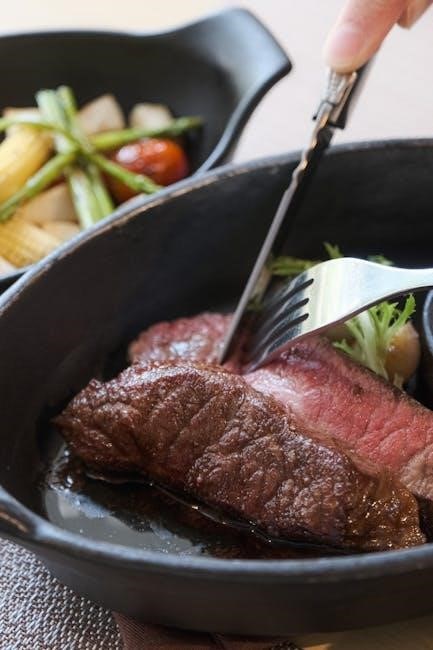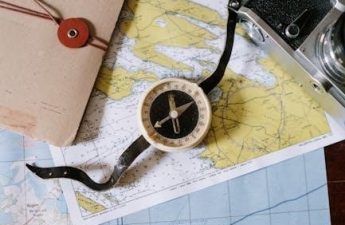The Maine Guide Course offers comprehensive training for aspiring guides, focusing on outdoor skills, safety, and local regulations. It prepares individuals for the rigorous state licensing process.
Overview of the Maine Guide License
The Maine Guide License is a prestigious certification granted to individuals who demonstrate expertise in guiding outdoor activities such as recreation, fishing, and hunting. Obtaining this license is challenging, requiring both written and oral exams to prove proficiency in navigation, safety, and local regulations. The license is categorized into three main classifications: Recreation, Fishing, and Hunting, each with specific requirements. It is highly respected statewide and reflects a deep understanding of Maine’s wilderness. The rigorous process ensures guides are well-prepared to lead safe and enjoyable experiences for clients. With a high failure rate for initial applicants, specialized training programs are essential for success.
Importance of Becoming a Registered Maine Guide
Becoming a Registered Maine Guide is a prestigious achievement, reflecting deep expertise in outdoor skills, safety, and local regulations. It opens doors to career opportunities in guiding, enabling individuals to lead safe, educational, and enjoyable experiences for clients. The certification is highly respected statewide and demonstrates a commitment to preserving Maine’s wilderness traditions. For many, it represents a lifelong passion for the outdoors, while others see it as a pathway to building successful guide businesses. The rigorous licensing process ensures guides are well-prepared to handle diverse challenges, making the certification a badge of honor and trust in the eyes of clients and peers alike.

Maine Guide Licensing Process
The Maine Guide licensing process is rigorous, ensuring candidates meet high standards. It includes exams, background checks, and hands-on testing to verify outdoor expertise and safety knowledge.
State Requirements and Application Process
Obtaining a Maine Guide License requires meeting specific state criteria. Applicants must pass both written and oral exams, demonstrating expertise in outdoor skills, safety, and local regulations. A $125 fee applies per classification (Recreation, Fishing, or Hunting). First-time applicants must also complete a background check. The application process involves submitting required forms, paying fees, and scheduling exams. Passing both tests is mandatory, with a high failure rate for unprepared candidates. Additionally, applicants must hold current first aid certification. The process ensures only qualified individuals can legally guide in Maine, upholding the state’s high standards for outdoor professionals.

Classification of Guide Licenses (Recreation, Fishing, Hunting)
Maine Guide Licenses are categorized into three classifications: Recreation, Fishing, and Hunting. The Recreation Guide License covers activities like hiking, camping, and paddling. Fishing Guides specialize in freshwater and saltwater fishing, requiring deep knowledge of species, regulations, and angling techniques. Hunting Guides focus on leading hunting trips for game such as deer, turkey, and waterfowl, necessitating expertise in tracking, habitat, and hunting laws. Each classification demands specific skills and knowledge tailored to the activity. Applicants must choose the classification(s) they wish to pursue and meet the associated requirements to ensure they are qualified to lead safe and successful outdoor adventures in Maine’s diverse natural settings.
Exam Preparation and Pass Rate Statistics
Preparing for the Maine Guide exam requires thorough knowledge of outdoor skills, safety protocols, and local regulations. The exam is challenging, with a high failure rate for unprepared candidates. However, students who enroll in structured training programs, such as the Registered Maine Guide Training, achieve a 91% pass rate. These programs cover essential topics like map reading, wildlife identification, and boating laws. Experienced instructors provide hands-on training and mock exams to build confidence. The curriculum is designed to address all aspects of the state-administered test, ensuring students are well-prepared. This focused approach significantly improves success rates, making professional guide certification more attainable for aspiring guides.

Training Programs and Courses
The Maine Guide Course offers 3-day, 6-day, and week-long training programs, providing hands-on experience and specialized skills like paddling, poling, and river rescues. Women’s-only options and experienced instructors are available.
Registered Maine Guide Training Curriculum
The curriculum covers essential skills like map reading, compass navigation, and wildlife identification. Students learn boating laws, trip planning, and outdoor safety. Practical training includes canoeing, camping, and client care. Instructors with decades of experience guide participants through hands-on exercises. The program emphasizes both technical knowledge and real-world application, ensuring readiness for the state-administered exam. With a focus on building confidence, the curriculum addresses everything from river rescues to business management. The structured approach ensures comprehensive preparation, reflecting the high standards of Maine’s elite guides. The training also includes specialized topics like paddling techniques and emergency response, ensuring a well-rounded education for aspiring guides.
Duration and Structure of Training Classes (3-Day, 6-Day, Week-Long)
Training programs vary in duration to accommodate different learning needs. The 3-Day course provides an introduction to essential skills, focusing on map reading, compass navigation, and basic outdoor safety. The 6-Day program offers a more comprehensive experience, covering topics like boating laws, wildlife identification, and trip planning. For those seeking immersive training, the Week-Long course includes extensive hands-on experience, such as river rescues, paddling techniques, and camping skills. Each program is structured to build confidence and practical knowledge, ensuring participants are well-prepared for the challenges of guiding. Locations like the Dead River in West Forks, ME, provide ideal settings for real-world application. Experienced instructors guide learners through structured lessons, blending theory with practice for a holistic learning experience.
Field Training and Hands-On Experience
Field training is a cornerstone of the Maine Guide Course, offering practical, real-world experience. Students engage in hands-on exercises such as river rescues, paddling, and poling, taught by experienced guides. Locations like the Dead River provide ideal settings for mastering skills like whitewater navigation and watercraft operations. Instructors emphasize safety and confidence-building through immersive activities. Participants learn to apply theoretical knowledge in dynamic outdoor environments, ensuring they are prepared for guiding scenarios. These experiential sessions are designed to simulate actual guiding challenges, fostering competence and adaptability. The focus is on developing instincts and problem-solving abilities critical for leading safe and successful outdoor adventures.

Essential Skills and Knowledge
The Maine Guide Course emphasizes map reading, compass navigation, wildlife identification, and outdoor safety. Students master risk management, emergency response, and local regulations to ensure expert guidance in various terrains.
Map Reading, Compass, and Navigation Techniques
Mastering map reading and compass skills is crucial for Maine Guides. Students learn to interpret topographic maps, use compass bearings, and navigate diverse terrains confidently. Training includes identifying landmarks, understanding scale and symbols, and applying these skills in real-world scenarios. The course emphasizes practical experience, ensuring guides can lead effectively, even in remote areas with limited visibility. These navigation techniques are essential for safely guiding clients through Maine’s vast wilderness, ensuring accurate route-finding and emergency response preparedness.
Wildlife and Plant Identification
Identifying wildlife and plants is a cornerstone of the Maine Guide Course. Students learn to recognize native species, understand their habitats, and interpret behaviors. This knowledge enhances guides’ ability to provide engaging nature tours and ensure client safety. Training includes recognizing edible plants, identifying tracks, and understanding ecological relationships. Practical exercises, such as field walks and interactive workshops, reinforce learning. Understanding Maine’s flora and fauna also aids in conservation efforts and responsible guiding practices. This expertise allows guides to enrich client experiences while preserving the state’s natural heritage.

Outdoor Safety, Risk Management, and Emergency Response
Outdoor safety and risk management are critical components of the Maine Guide Course. Guides learn to assess risks, implement safety protocols, and respond to emergencies effectively. Training includes first aid, wilderness survival, and crisis communication. Students practice real-life scenarios, such as navigating challenging terrain and managing weather-related hazards. Emergency response techniques, including search and rescue operations, are also covered. These skills ensure guides can protect clients and themselves in remote settings. The course emphasizes preparedness and decision-making, equipping guides with the confidence to handle unexpected situations responsibly and efficiently.

Specialized Skills for Guides
This section focuses on advanced guiding techniques, including watercraft operations and paddling, while emphasizing hands-on training for real-world experience. Essential for professional guides.
Boating Safety, Laws, and Watercraft Operations
Mastering boating safety and watercraft operations is crucial for Maine Guides. Courses cover state boating laws, navigation rules, and emergency procedures. Students learn to operate various watercraft, including canoes and boats, safely in diverse conditions. Training emphasizes understanding weather patterns, river currents, and accident prevention; Practical exercises focus on docking, anchoring, and maneuvering in tight spaces. Guides also study legal requirements for watercraft registration and safety equipment. Hands-on training ensures proficiency in rescue techniques and emergency response. These skills are essential for leading safe and successful water-based excursions in Maine’s vast wilderness areas. Real-world experience builds confidence and competence in handling watercraft responsibly.

Canoeing, Paddling, and Poling Techniques
Mastering canoeing, paddling, and poling is essential for Maine Guides, ensuring safe and efficient navigation of rivers and lakes. Training focuses on strokes, maneuvering, and stability techniques. Students learn to handle canoes in calm and whitewater conditions, emphasizing control and precision. Poling techniques are taught for shallow waters and tight spaces, enhancing guiding capabilities. Instructors with decades of experience provide hands-on training, ensuring proficiency in reading water currents and avoiding hazards. Practical exercises build muscle memory and confidence, enabling guides to lead seamless paddling excursions. These skills are vital for safely transporting clients and gear in Maine’s diverse waterways, from serene lakes to challenging rapids.
River Rescues and Whitewater Navigation
River rescues and whitewater navigation are critical skills for Maine Guides, ensuring safety in dynamic water environments. Training emphasizes swift water rescue techniques, self-rescue methods, and group safety protocols. Students learn to read water currents, identify hazards, and navigate challenging rapids confidently. Hands-on practice includes using rescue ropes, throw bags, and flotation devices to recover personnel and equipment. Whitewater navigation focuses on boat control, maneuvering, and avoiding obstacles. Instructors with extensive experience guide students through real-world scenarios, preparing them to handle emergencies effectively. These skills are essential for leading safe and successful river expeditions in Maine’s rugged wilderness areas, where unpredictable conditions demand expertise and quick decision-making.

Business and Client Management
Business and client management are crucial for guides’ success, focusing on strategies for building a loyal client base, ensuring satisfaction, and effectively promoting services.
Building a Successful Guide Business
Building a successful guide business requires a combination of outdoor expertise, strong client relationships, and effective marketing strategies. Many guides start by gaining hands-on experience and creating a network of clients through word-of-mouth referrals. Developing a unique brand identity and showcasing specialized skills, such as fishing, hunting, or eco-tourism, can set a business apart. Guides are also encouraged to leverage social media and websites to promote their services. Client satisfaction is key, as positive reviews and repeat business are essential for long-term success. Training programs often include modules on business management, helping aspiring guides develop the necessary skills to thrive in this competitive field.
Client Care, Communication, and Interview Techniques
Effective client care and communication are crucial for success as a Maine Guide. Training programs emphasize how to build strong relationships with clients, ensuring positive experiences and repeat business. Guides learn to communicate clearly, listen actively, and adapt to client needs. Interview techniques are also refined to help guides confidently showcase their expertise during state licensing exams. These skills ensure guides can articulate their knowledge and professionalism, whether interacting with clients or demonstrating competence to state administrators. Confidence and clarity are key to making a lasting impression and ensuring successful outcomes in both client interactions and licensing processes.
Marketing and Promoting Your Guide Services
Successful guides understand the importance of effective marketing to attract clients. Training programs teach how to promote services through websites, social media, and local networks. Guides learn to create compelling content, use SEO strategies, and leverage testimonials to build credibility. Emphasizing unique selling points, such as specialized skills or local knowledge, helps differentiate services in a competitive market. Networking opportunities and partnerships with outdoor businesses are also explored to expand reach and visibility. By mastering these strategies, guides can establish a strong brand and attract a loyal client base, ensuring long-term success in the industry.

Additional Resources and Support
Participants gain access to veterans’ education benefits, paramedic-led first aid training, and continuing education programs to enhance their guiding skills and stay updated on industry standards.
Veterans’ Education Benefits and Training Opportunities
Veterans can leverage their education benefits to enroll in approved Maine Guide Training programs. Eligible military personnel, veterans, and dependents can use their GI Bill benefits to cover course fees. These programs are specifically designed to help veterans transition into outdoor careers, offering specialized training in guiding skills. Many schools and training providers are certified to accept VA benefits, ensuring affordability and accessibility. The curriculum covers essential skills like navigation, wildlife identification, and safety protocols, preparing veterans for the licensing exam. This opportunity not only honors their service but also equips them with the knowledge and confidence to succeed as Registered Maine Guides.
First Aid and Paramedic-Led Training for Guides
The Maine Guide Course includes paramedic-led first aid training, a critical requirement for certification. Taught by practicing first responders, this course equips guides with advanced life-saving skills. Participants learn hands-on techniques for emergency response, such as wound management, splinting, and CPR. The curriculum emphasizes practical application, ensuring guides can handle real-world scenarios. This specialized training is designed to meet state standards and prepare guides for remote outdoor environments. By focusing on both prevention and intervention, the program ensures guides are confident and capable in emergencies. This comprehensive approach reinforces the importance of safety and readiness in the field.
Continuing Education and Professional Development
Continuing education is vital for Registered Maine Guides to stay updated on industry standards and best practices. The Maine Guide Course offers ongoing training opportunities, including workshops and seminars, to enhance skills and knowledge. These programs cover advanced topics such as environmental conservation, wildlife management, and outdoor safety protocols. Guides can also pursue specialized courses in areas like eco-tourism, sustainable practices, and emergency response. Many programs are designed to accommodate working professionals, ensuring flexibility and accessibility. By committing to lifelong learning, guides can maintain their expertise and adapt to evolving challenges in the field. This dedication to professional development ensures high-quality experiences for clients and fosters a community of skilled outdoor leaders.



